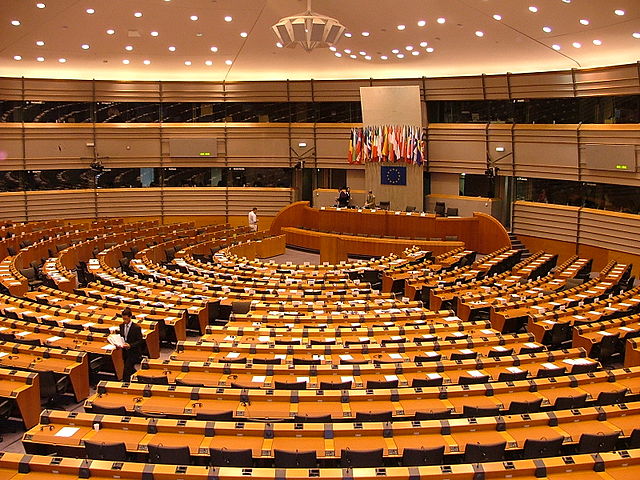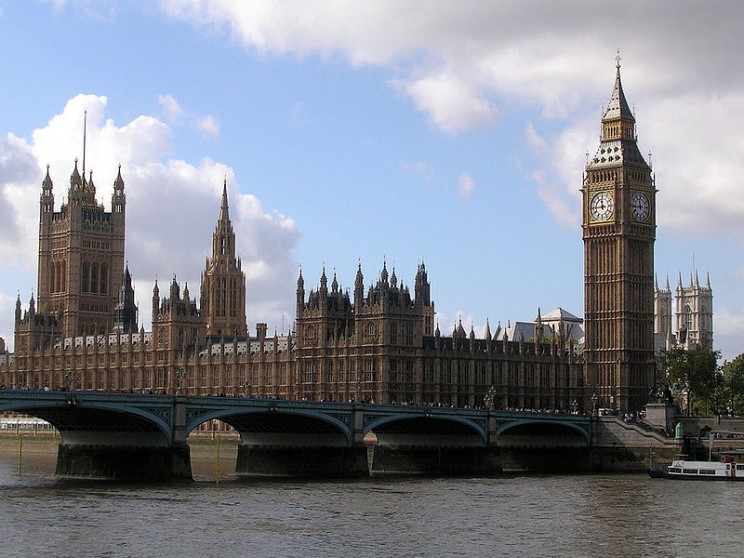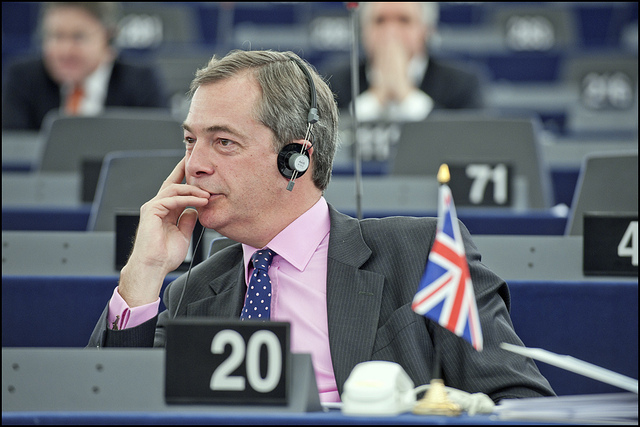new posts in all blogs
Viewing: Blog Posts Tagged with: European Parliament, Most Recent at Top [Help]
Results 1 - 5 of 5
How to use this Page
You are viewing the most recent posts tagged with the words: European Parliament in the JacketFlap blog reader. What is a tag? Think of a tag as a keyword or category label. Tags can both help you find posts on JacketFlap.com as well as provide an easy way for you to "remember" and classify posts for later recall. Try adding a tag yourself by clicking "Add a tag" below a post's header. Scroll down through the list of Recent Posts in the left column and click on a post title that sounds interesting. You can view all posts from a specific blog by clicking the Blog name in the right column, or you can click a 'More Posts from this Blog' link in any individual post.

By: Clare Hanson,
on 11/29/2015
Blog:
OUPblog
(
Login to Add to MyJacketFlap)
JacketFlap tags:
British Parliament,
European Parliament,
EU member states,
European citizens,
European Council,
Representing Europeans,
Representing Europeans: A Pragmatic Approach,
Richard Rose,
Books,
democracy,
Politics,
EU,
European Union,
Social Sciences,
*Featured,
Add a tag
In a symbolic gesture toward creating an ever closer Union, the European Union conferred citizenship on everyone who was also a subject of one of its member states. However, the rights of European citizens are more like those of subjects of the pre-1914 Germain Kaiser than of a 21st century European democracy.
The post The European Union: too much democracy, too little, or both? appeared first on OUPblog.

By: Alice,
on 6/4/2014
Blog:
OUPblog
(
Login to Add to MyJacketFlap)
JacketFlap tags:
turnout,
Nigel Farage,
UKIP,
farage,
oleari,
Books,
Politics,
Current Affairs,
European Union,
nigel,
*Featured,
Defending Politics,
Matthew Flinders,
flinders,
fallout,
European Parliament,
Political Spike with Matthew Flinders,
european elections,
far left parties,
far right parties,
Add a tag

By Matthew Flinders
The earthquake has happened, the tremors have been felt, party leaders are dealing with the aftershocks and a number of fault-lines in contemporary British and European politics have been exposed. Or have they? Were last month’s European elections really as momentous as many social and political commentators seem to believe?
‘Failure’ is a glib and glum word. Its association with all things ‘political’ has become the dominant narrative of recent decades. Indeed, possibly the only surprising element of the success of the anti-European Union and protest parties last month was that they had not achieved success earlier. The share of the anti-EU and protest parties increased from 164 to 229 seats in the European Parliament (21.4% to 30.5%) and there is no doubt that European politics is set to become more fragile and unpredictable as a result. But surely this phenomenon represents not the failure of politics but the success of politics in the sense that widespread public frustration and concern has led to significant change. Put slightly differently, public opinion has changed the balance of power within the political architecture but without the shedding of blood.
Forgive me for daring to make such an unfashionable argument but there is a second issue relating to the subsequent post-earthquake political ‘settling’ – that is that the fallout needs to remember the turnout. This is a critical point. In many ways the people have not spoken as most of them stayed at home or simply had more interesting things to do with their time. Across Europe the average turnout was 43% and in the United Kingdom this figure was down to 34.2%. The highest was Belgium with 90% turnout with its non-enforced system of compulsory voting. Slovakia was at the bottom of the turnout charts with just 13%, but this fact is in itself critical when placed against the danger that mainstream political parties will over-react towards the vocal minority.
To make such an argument is not in any way undermine the need for the established political parties to listen and change. The rise of UKIP in the UK, the Danish People’s Party in Denmark, the Front National in France, and the Freedom Party in Austria — not to mention the far-left wing parties in the form of SYRIZA in Greece or the Five Star Movement in Italy — signals strong social currants that need to be channeled. The fluidity and energy of this current is reflected in Spain’s new leftist party Podemos [We Can]. This party did not even exist eight weeks ago and yet it now has five seats in the European parliament. Change has undoubtedly occurred but the turnout was low and these parties do not represent a coherent political group, ranging from parties with experience of government through to fringe groups and neo-fascists. They are generally a collection of ‘None-of-the-above’ parties.
Enmity from the post-millennium global economic crisis has catapulted these ‘None-of-the-above’ parties into office. The failure of the economic system created its own political fallout and the reverberations were felt in the recent European elections. If democracy works then the mainstream groups in the European Parliament may well demonstrate that reform is possible and respond to voters; if democracy fails then we’ll be left with a terrible choice between more Europe or no Europe that populist and nationalistic parties will exploit in favor of the latter.
Such gloomy predictions lead me – almost inevitably – to a word about Nigel Farage: the King of the ‘none-of-the-above-party’. My holiday reading last week (Cromer, North Norfolk, very nice due to the town being trapped in a time warp) was Sigmund Freud’s The Joke and Its Relation to the Unconscious (1905). This is not a funny book but when reading it I could not help but think of King Nigel. He is a joker and for him ‘every pub is a parliament’ but this is both the asset and the problem. His jokes and banter are accessible to everyone and provide a sense of relief or release by opening-up issues that were previously off-limits. For Freud this is the social role and deeper meaning of jokes and humor but the problem for Farage is that he is generally regarded comically rather than seriously. He is a Spitting Image character that does not need a puppet. Although many people may vote for him and his party in what they mistakenly believe to be ‘secondary’ or ‘minor’ elections – they might even do so at the Newark By-election next week – they are far less likely to do so at next year’s General Election.
 Matthew Flinders is Founding Director of the Sir Bernard Crick Centre for the Public Understanding of Politics at the University of Sheffield and also Visiting Distinguished Professor in Governance and Public Policy at Murdoch University, Western Australia. He is the author of Defending Politics (2012).
Matthew Flinders is Founding Director of the Sir Bernard Crick Centre for the Public Understanding of Politics at the University of Sheffield and also Visiting Distinguished Professor in Governance and Public Policy at Murdoch University, Western Australia. He is the author of Defending Politics (2012).
Subscribe to the OUPblog via email or RSS.
Subscribe to only politics articles on the OUPblog via email or RSS.
The post After the storm: failure, fallout, and Farage appeared first on OUPblog.


By: Kirsty,
on 5/22/2014
Blog:
OUPblog
(
Login to Add to MyJacketFlap)
JacketFlap tags:
Politics,
elections,
Current Affairs,
recession,
ferry,
Europe,
EU,
brussels,
European Union,
*Featured,
Business & Economics,
European Parliament,
UKIP,
european commission,
european elections 2014,
european politics,
jean pisani-ferry,
the euro,
the euro criss and its aftermath,
pisani,
alina,
zienowicz,
Add a tag
By Jean Pisani-Ferry
At the end of May, 400 million EU citizens will be called to participate in the second-largest direct election in the world (the first being held in India). Since they last went to the polls to elect their parliament, in 2009, Europe has gone through an acute crisis that precipitated several countries deeper into recession than any peacetime shock they had suffered for a century. In several of the continent’s regions, more than a fourth of the labour force is unemployed. Over the last five years, the crisis has exposed many weaknesses in the design of the euro area and there has been no shortage of heated policy debates about the nature of the systemic reforms that were required. In the same vein, both the European Central Bank’s response and the pace of fiscal consolidation have been matters for ongoing controversies.
Against this background, one could expect political parties to offer clearly defined alternative choices for the future of Europe and citizens to participate to the elections en masse – even more so because the next parliament will have a say in the selection of the coming European Commission, the EU’s executive body. Expectations, however, are uniformly grim. Last time the election was held, turnout was 43% only. It is anticipated that it will be low again and that fringe national parties will be significant winners in the election. Throughout Europe, mainstream politicians are preparing for a setback. Some foresee a disaster.
There are three reasons for this paradox. First, citizens do not grasp what the European parliament is about. It is, in fact, an active and thorough legislator. Over the last five years, it has for example been an energetic player in the elaboration of a regulatory response to the global financial crisis and a staunch protector of European consumer. Recently it has played a major role in the creation of a banking union in the EU. But it is rarely the place where the debates that define the political agenda and capture the citizens’ attention are held.

Second, dividing lines within parliament are often national rather than political. On industrial policy, trade and regulation, as well as far as relationships with neighbours are concerned, which country you belong to matters as much as which camp you are from. Consequently, issues are often settled with a compromise that blurs the separation between left and right. As in addition virtually all the media are national and generally pitch the debate as opposing the national capital and ‘Brussels’ or another capital, voters have no perception of the sometimes very real differences between left and right.
Third, the fundamental European debate is of a constitutional nature and for this reason it cannot be settled by the parliament. This is true of the key issues that arose during the euro crisis: whether to rescue countries in trouble, whether to mutualise public debt, whether to change the decision rule for sanctions against excessive budget deficits, whether to go for a banking union. Each time the big question was, what do Germany, France and other Eurozone countries think? It was not what does the European parliament think, because almost by definition the parliament has always been in favour of more Europe.
These three obstacles to a pan-European political debate explain why fringe anti-EU parties like the UK Independence Party (UKIP), or the French National Front generally do well in the European parliament elections. Their simple message is that European integration is the wrong way to go and that national governments should repatriate powers from Brussels. As the scope for disagreement between the two main centre-right and centre-left parties is much narrower than the range of views amongst voters, voters who have sympathy for the anti-EU know why and for whom they should vote while those who are in favour of European integration do not have many reasons to vote, because the mainstream parties’ platforms are largely interchangeable.
To overcome the obstacle, a recent reform has stipulated that when appointing the European Commission’s president, the heads of state and government should take into account the result of the elections to the European parliament. In principle therefore, the next European Commission president will belong to the party holding the (relative) majority in the European parliament. Furthermore, the main parties have already nominated their candidates to the European Commission. This politicisation is meant to flag to the citizens that their vote matters and will result in determining the roadmap for the next five years. Unfortunately however, it is not clear whether mainstream parties will be able to formulate policy platforms that are defined enough to attract voters.
Does it matter? After all Europe’s situation is not unique. In the US participation rates in the mid-term elections (when the presidency is not in the ballot) are generally well below 50%. They are also rather low in other federations like India or Switzerland. As Tip O’Neill, the former speaker of the US House, used to say, “all politics is local” and this affects the voters’ behaviour. Europe, in a way, is awkward, but normal: the EU does the legislation, but politics is national.
This is however a too complacent reading of the reality. At a time when countries participating in the euro are confronted with major choices, the risk for Europe is to emerge from the elections with a weak legitimacy (because of the turnout) and a politically distorted parliament (because of the strong showing of the fringe parties). This would make governments wary of bold choices and could result in an unhealthy stalemate. It is not yet time for the EU to become boringly normal.
Jean Pisani-Ferry currently serves as the Commissioner-General for Policy Planning to the Prime Minister of France. He is also Professor of Economics and Public Management at the Hertie School of Governance in Berlin. Until May 2013 he was the director of Bruegel, the Brussels-based economic think tank he contributed to founding in 2005. He is the author of The Euro Crisis and Its Aftermath.
Subscribe to the OUPblog via email or RSS.
Subscribe to only political sciences articles on the OUPblog via email or RSS.
Image credit: The European Parliament, Brussels. Photo by Alina Zienowicz. CC-BY-SA-3.0 via Wikimedia Commons
The post All (European) politics is national appeared first on OUPblog.


By: DanP,
on 5/8/2014
Blog:
OUPblog
(
Login to Add to MyJacketFlap)
JacketFlap tags:
Green Party,
conservative,
labour,
*Featured,
European Parliament,
jad adams,
european elections,
local elections,
mayors,
liberal democrats,
UK politics,
Political Parties,
councillors,
Local Government Act,
party list system,
UKIP,
women and the vote,
Books,
democracy,
Politics,
Current Affairs,
Add a tag
By Jad Adams
I support democracy. I like to think I do so to the extent of willingness to fight and perhaps die for it. This is not so extravagant a claim, within living memory the men in my family were called upon to do exactly that.
Universal suffrage is consequently my birth-right, but what is it that I am being permitted to do with my vote, when the political parties have so adjusted the system to suit themselves?
In the coming elections for local councils and the European Parliament, two relatively recent changes have stripped away most of the choices voters had and given them to the political parties. The Local Government Act 2000 and the party list system, introduced for European elections in 1999, are both triumphs of management over content. Both shuffled power from an aggregate of the electors to a small number of people running the party machines.
When I first saw local government in action, as a junior reporter on a local paper, I felt admiration for the range of abilities and oratorical skill that leading councillors brought to their posts. They were people who not only worked unpaid, but often made real financial sacrifices in order to work for their locality. When I occasionally attend council meetings today I am struck by the poor quality of the debates, the inability to see the implications of policy beyond party advantage, the lack of intellectual rigour, the sheer irrelevance of most of this political process to the business of local government, which is now carried on by senior officers.
What happened in the interim? The Local Government Act 2000 did away with the old committee system that had run councils since 1835, through more than a century and a half of municipal progress. The government imposed a ‘leader and cabinet’ system. Active local democracy was ‘modernised’ into non-existence; only cabinet members now have any authority and even their role is merely advisory to the leader.
The leader appoints the cabinet; the rest of the councillors are supporters or impotent opponents. There is no political brake on the leader’s authority, but decisions can be criticised in retrospect by a ‘scrutiny committee.’ This is not local democracy but local autocracy.

Is it any wonder that people of quality are reluctant to come forward to be councillors when they have no influence except that can be garnered by toadying to the leader, who might then appoint them to the cabinet and put some money in their pockets? People of quality wanting to act in public affairs realise they could have more influence in pressure groups. Of course, there are still some meritorious councillors, just as under the old system there were some fools. My observation is that the balance has shifted and there are now fewer people of quality prepared to go through the system.
Voters were in fact given something of a choice over the introduction of the Local Government Act 2000: they could choose whether to have the directly elected mayor and cabinet system, or the leader and cabinet system. There was no option of retaining the tried and tested system of committees where every councillor had a voice. So it was a charade of a ballot where only votes in favour were requested and counted. This used to be called ‘guided democracy’ in east European countries.
As with every centralisation, those who already possessed power welcomed the developments of the Act with hands outstretched. It put more money into the system, gave senior officers more power (which, since it had to come from somewhere, meant commensurately less for elected representatives), paid councillors, and gave ever-increasing sums to cabinet members for special responsibilities.
In a few places the gimmick of directly elected leaders (confusingly referred to as mayors) was tried. The public were indifferent everywhere except London where candidates from both major parties have excelled as mayors, but London is more like a city state with a president than a municipal corporation. Elected mayors in four of thirty-two London boroughs have added to the cost of the process but contributed nothing to efficiency. Outside of London there are eleven directly elected mayors, with two other towns having tried but abandoned the system as an expensive flop. This local lack of democracy is one of the ways in which the system has become fragmented, the responsiveness of the elected moving further and further away from those they are supposed to represent and towards their party loyalty.
On a larger scale, there is the other election we face this month, for Members of the European Parliament, which has been entirely taken over by political parties. A system in which electors voted for a local MEP was replaced in 1999 by the European Party Elections Act with a party list system with the additionally unfriendly title of ‘closed list.’ That means voters can vote only for a party, and the first candidates on the list chosen by the party will get in — even if that person is heartily despised by their own supporters, so long as they are favoured by the party bosses.
This is not an arcane argument about supposed representation with no relevance to individuals. I have a property in Greece. I had a problem with the planning authorities there where I felt I was being discriminated against as a non-Greek. Contact my Member of the European Parliament, I thought. So who is that?
I found Greek MEPs with parties like the Popular Orthodox Rally or members of groupings such as the Nordic Green Left Confederation, but no member for the Dodecanese islands. After one and a half days of trying to make contact with people via the Internet, Brussels and party offices, I finally called a London MEP who had a Greek name so I supposed she might know something. She was in fact very helpful, but is this any way to run a representative democracy? I did not vote for this MEP, at best I might have voted for a party list on which she appeared somewhere.
In the UK we now have this party list system; single transferable votes (for directly elected mayors); the mixed member system for the Welsh assembly (don’t ask); regional proportional representation for the Scottish parliament and first past the post for general elections.
I still think I would still fight for democracy, but which democracy is that?
Jad Adams is an independent historian specializing in the nineteenth and twentieth centuries. He is a Research Fellow at the Institute of English, School of Advanced Study, University of London, and a Fellow of the Institute of Historical Research. His forthcoming book,
Women and the Vote, is published by Oxford University Press and available from September 2014.
Subscribe to the OUPblog via email or RSS.
Subscribe to only politics articles on the OUPblog via email or RSS.
Image credit: Westminster Bridge, Parliament House. Photo by Jiong Sheng, 25 September 2005. CC BY-SA 2.0 via Wikimedia Commons.
The post My democracy, which democracy? appeared first on OUPblog.


By: Alice,
on 3/4/2014
Blog:
OUPblog
(
Login to Add to MyJacketFlap)
JacketFlap tags:
Books,
History,
Politics,
Current Affairs,
responsibility,
Europe,
voters,
parliament,
accountability,
sara,
European Union,
Governance,
*Featured,
Blaming Europe?,
Democratic accountability,
electoral accountabilit,
European Parliament,
eurozone crisis,
James Tilley,
Sara Hobolt,
hobolt,
tilley,
multilevel,
sanction,
Add a tag
By Sara B Hobolt and James Tilley
During November 2012 hundreds of thousands of people across Europe took to the streets. The protesters were, by and large, complaining about government policies that increased taxes and lowered government spending. This initially sounds like a familiar story of popular protests against government austerity programmes, but there is a twist to the tale. Many of the people protesting were not aiming their ire at the national governments making the cuts in spending, but rather at the European Union. In Portugal, people carried effigies of their prime minister on strings and claimed he was a ‘puppet of the EU’; in Greece people burned the EU flag and shouted ‘EU out’; and in Italy people threw stones at the European Parliament offices. It was, at least for some people on the streets, not the incumbent national politicians in Lisbon, Athens, and Rome who were to blame for the problem of the day, but rather politicians and bureaucrats thousands of miles away in Brussels.
The economic crisis in Europe has illustrated that citizens are increasingly blaming not just their national governments, but also ‘Europe’ for their woes. This raises the question of whether citizens can hold European politicians to account for the outcomes for which they are thought to be responsible. The notion of democratic accountability relies on the critical assumption that voters are able to assign responsibility for policy decisions and outcomes, and sanction the government in elections if it is responsible for outcomes not seen to be ‘in their best interest’. This process, however, is clearly complicated in the multilevel system of the European Union where responsibility is not only dispersed across multiple levels of government, but there are also multiple mechanisms for sanctioning governments.

Democratic accountability in multilevel systems can be viewed as a two-step process, where specific requirements need to be met at each step to allow voters to hold governments to account. The first step is one where voters decide which level of government, if any, is responsible for specific policy outcomes and decisions. This depends on the clarity of institutional divisions of powers across levels of government, and the information available about the responsibilities of these divisions. The second step is one where voters should be able to sanction the government in an election on the basis of performance. This depends on government clarity: that is the ability of voters to identify a cohesive political actor that they can sanction accordingly.
Both of these steps are important. Assignment of responsibility to a particular level of government is a necessary, but not sufficient, condition to be able to punish an incumbent at the polls. To do so, voters also need to know which party or individual to vote for or against. Yet, the EU lacks a clear and identifiable government. Executive power is shared between the European Council and the European Commission, and legislative power is shared between the Council of the EU and the European Parliament. The primary mechanism through which citizens can hold EU institutions to account is via elections to the European Parliament. Unlike in national parliamentary systems, the majority in the European Parliament does not ‘elect’ the EU executive, however. Despite the formal powers of the European Parliament over the approval and dismissal of the European Commission there is only a tenuous link between the political majority in the Parliament and the policies of the Commission, not least since there is no clear government-opposition division in the Parliament. Despite current attempts to present rival candidates for the post of Commission president prior to the European Parliament elections in May, there is still no competition between candidates with competing policy agendas and different records at the EU level. Without this kind of politicised contest it is simply not possible for voters to identify which parties are responsible for the current policy outcomes and which parties offer an alternative.
As a consequence, the classic model of electoral accountability cannot be applied to European Parliament elections. Even if citizens think the EU is responsible for poor policy performance in an area, they find it difficult to identify which parties are ‘governing’ and punish, or reward, them at the ballot box. This has broader implications for trust and legitimacy. When people hold the EU responsible for poor performance, but cannot hold it accountable for that performance, they become less trusting of the EU institutions as a whole. Thus the danger for the EU is that every time the system fails to deliver — such as during the Eurozone crisis — the result is declining levels of trust and a crisis of confidence in the regime as a whole, because voters lack the opportunity to punish an incumbent and elect an alternative. In other words, the lack of mechanisms to hold EU policymakers to account may lead to a more fundamental legitimacy crisis in the European Union.
Sara Hobolt and James Tilley are co-authors of Blaming Europe? Responsibility without accountability in the European Union. Sara Hobolt is the Sutherland Chair in European Institutions at the European Institute of the London School of Economics and Political Science. James Tilley is a university lecturer at the Department of Politics and International m Relations at the University of Oxford and a fellow of Jesus College, Oxford.
Subscribe to the OUPblog via email or RSS.
Subscribe to only history articles on the OUPblog via email or RSS.
Image credit: Photo credit © European Union, 2014 via EC Audiovisual Service.
The post A crisis of European democracy? appeared first on OUPblog.






 Matthew Flinders is Founding Director of the
Matthew Flinders is Founding Director of the 

